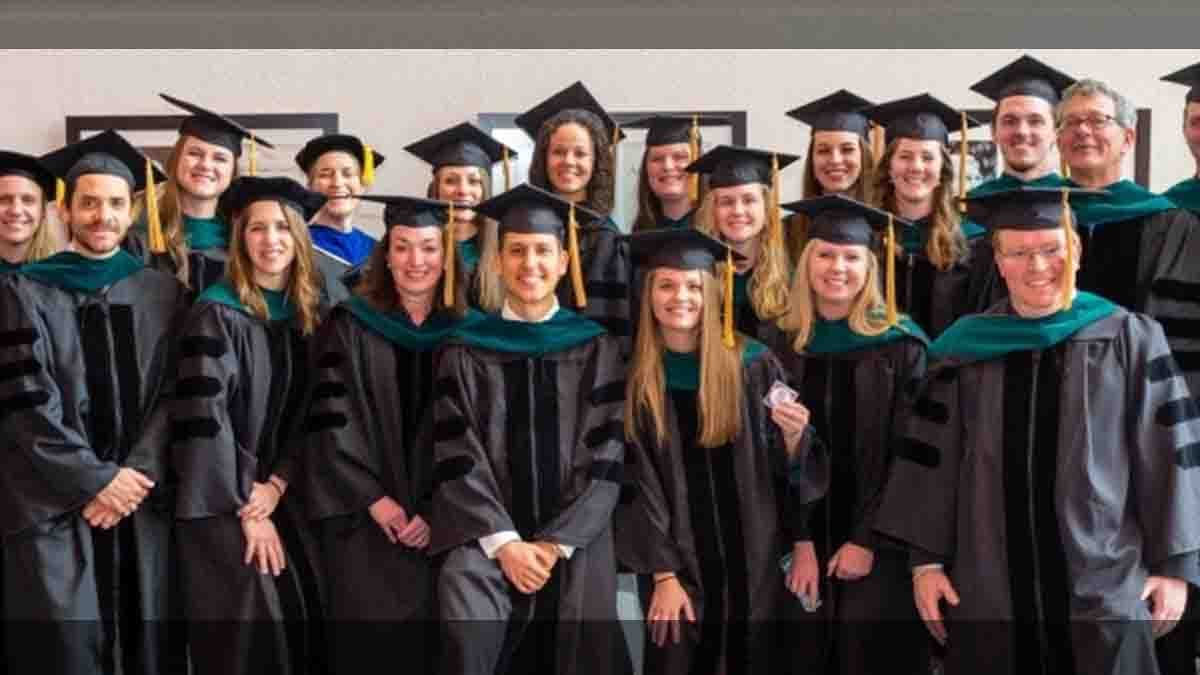The process of getting into college can be confusing, but if you ask the right questions, you can make it easier to understand.
According to the Princeton Review, strong SAT or ACT scores can help students unlock merit-based aid even at test-optional schools.
This article addresses important academic programs, campus life, and financial aid questions.
Its purpose is to help students make choices that align with their personal and academic goals.
What is College Admissions?
College admissions is the process through which students apply to and are selected to attend a college or university.
It usually involves submitting documents, like your high school transcript, standardized test scores, personal essays, and sometimes letters of recommendation, to show that you’re a good fit for the school.
Why Do you have to ask Questions at College Admissions?
When applying to college, you have to answer questions that show more about you than your grades and test scores.
This helps colleges understand who you are, what you like, and how you could fit in with the group on campus.
They also look at your answers to see if you fit in with their values and plans.
You can also share your unique story, experiences, and goals when you answer questions for college applications.
Admissions officers can see your ability, how you think, and if you’ll do well at their school by the answers you give.
Questions to ask College Admissions
- Questions About Academics
- Questions About Career
- Questions About Social Life on Campus
- Questions to Avoid Asking College Admissions Officers
Top Questions About Academics To Ask College Admissions
When you ask questions about studies, you are interested in how a school or program teaches.
They’re basically about getting a sense of the learning experience you’ll have.
1. What majors and minors do you offer?
In college, you can choose to focus on a number of subjects, which are called majors, or take a number of other subjects, which are called minors.
This way, you can find out if the school offers the subject you want to study and what other topics you can pair it with to learn more.
2. How large are the classes, especially in my major?
The number of people in a class can greatly affect how well you learn.
Smaller education facilities may give you more opportunities to chat with the teacher and obtain one-on-one help, especially in major-related topics.
3. What resources are there to help new college students with their studies, like extra help with writing or other subjects?
The transition to college often comes with new academic challenges, and the level of support a college provides can be critical to a student’s success.
This question aims to uncover what academic resources, such as tutoring centers, writing help, or subject-specific workshops, are available to support freshmen.
It’s essential because it indicates the college’s commitment to student achievement and can be a lifeline for those struggling with the academic rigour of college life.
4. Do you have opportunities for undergraduate research?
Researching as an undergrad can help you learn more about your subject, get useful experience, and connect you with teachers who are experts in the field.
It’s a chance to make a difference in the school community before graduation.
5. Are there study abroad programs, and how do they tie into my major?
You can go to college in a different country for a while through study abroad programs.
This question helps you determine if spending time abroad can improve your education and how it will apply to your studies.
When you do it, you might see things differently and learn things that help you with your major.
6. How likely will I be able to enroll in my preferred classes?
This question gets at the heart of course availability and registration processes.
It’s crucial because being able to enroll in preferred classes affects a student’s ability to graduate on time, satisfy major requirements, and enjoy their learning experience.
It can also indicate how well the institution manages class sizes and student demand, which can signify good organizational structure and student-centred planning.
7. How does the college help prepare students for employment after graduation?
This is about getting ready for a job. If the college helps students find internships or jobs, and there are ways to network with graduates, that’s what you want to know.
It’s important because it has to do with how the college helps you make the change from being a student to working full-time.
8. What can you tell me about the academic support and guidance provided by the school?
Academic advising goes beyond choosing classes; it encompasses guidance on career paths, navigating college life, and planning for the future.
Asking this question is essential for understanding how well a school supports its students in making strategic decisions throughout their college journey.
Effective advising can significantly enhance a student’s educational experience and indicates an institution that values student development and success.

Questions About Career To Ask College Admissions
1. What kind of job placement help do you offer?
There are often career centers or other services at colleges that help students make the jump from college to the job market.
You’re trying to discover what these services cover by asking this question.
For example, do they offer resources to help you find a job, help with interviews, job placement programs, or events where you can meet possible employers?
This help is very important because it can greatly improve your chances of getting a job in your area after you graduate.
2. Do you have an alumni network students can use to find jobs?
Alumni networks can be very helpful for recent college graduates who are looking for work.
This question investigates whether the college actively looks after an alumni network and helps current students connect with graduates.
These kinds of networks can help people find mentors, insider knowledge about industries, and even job openings.
3. What type of work placement options are available for students in my field of study?
Internships are a great way for people to get the work experience that companies want in new employees.
This question wants to know what kinds of internships the school offers and how good they are.
4. How many students get jobs after they graduate?
This number, which is sometimes called a “graduate employment rate,” can give you a good idea of how well a college prepares you for your future.
If you ask about this, you can find out how well the college has done to help students get jobs in their chosen areas.
A college’s high employment rate can show that it has a good image with employers and that its programs are useful in the real world.
5. Can I do internships or co-op programs while I’m still in school?
Internships and joint education (co-op) programs let students learn in the classroom and gain work experience simultaneously.
This question determines if and how the college helps with these chances.
During these activities, you can use what you’ve learned in the real world, meet new people, and maybe even get a job offer before graduation.
6. Are there structured programs that integrate work experience with my academic schedule?
Through cooperative education programs, students can learn in school and gain work experience in a related area.
They might give you a more in-depth experience than regular jobs.
7. What skills will I learn in my major that employers want?
People ask this question to find out what the college’s courses are about and how useful they are.
You should do this because you want to ensure that your schooling fits the job market’s needs.
This information can help you choose a college that will give you an edge when you start working.
Questions About Social Life on Campus To Ask College Admissions
1. What clubs and activities can I join on campus?
Colleges generally have a lot of different clubs and organizations for students, from academic societies to hobby groups.
By asking this question, you can find out if there are clubs that share your hobbies or chances to try new things.
Being in a club is good for your social life because it can help you meet new people, learn new things, and feel more linked to the college community.
2. How active is Greek life on campus?
Greek life in college comprises social groups called fraternities, sororities, and other groups whose names come from the Greek alphabet.
People know these groups for bringing students together for social events, leadership training, community service, and networking.
Belonging to these groups can often mean following certain rules and rituals and committing to the group’s activities and ideals.
Greek life is a big part of the social scene on many college campuses.
Greek life can change the way people interact with each other at college through events, community work, and leadership roles.
3. Is there a strong sense of pride and participation in college sports and events?
School spirit can be a significant part of the college experience.
This question addresses how students come together to support their school and each other, which can foster a sense of community and belonging.
A strong sense of school spirit often correlates with a vibrant campus life, enhancing overall satisfaction and college involvement.
4. What do students usually do for fun around here?
The point of this question is to find out what kinds of fun and relaxing things students do in their free time.
It can include events on campus, things to do in the area, or hot places to hang out.
The answer helps you picture your free time and decide if the college’s location and culture fit your hobbies and way of life.
5. How’s the weekend scene on campus?
From college to college, the weekend vibe can be very different.
Some schools are busy with events and activities, while others may be quiet because many students have left.
It’s important to ask about the weekend scene because it shows how busy school is when classes aren’t going on and gives you an idea of what you can do to relax and hang out during your free time.
Questions to Avoid Asking College Admissions Officers
1. Can you guarantee I will get a job after I graduate?
There are too many factors, like the economy, the job market, and each person’s success, to make job guarantees after graduation a reality.
A college’s job is to give you the knowledge and skills you need to get a job, but it can’t guarantee you one.
Instead, find out what job support services the college offers and how it prepares students for work.
2. What’s the worst thing about your college?
If you ask this question, it might sound negative and rude.
Admissions officers like to talk about the good things about their school and how they’re always improving it.
What if you asked about the problems the college is having and what they are doing to fix them? That would be a more serious and helpful question.
3. Can I get in with bad grades?
If you ask this, it could mean you don’t care about how well you do in school.
Instead, find out what kinds of help are available for kids who have had trouble in the past.
This shows you are willing to get help and improve your study skills.
4. Is it okay to skip a lot of classes?
This question might show that you aren’t interested in your schooling.
Attendance rules are usually set by each professor, but it’s more important to focus on how to do well in your classes.
You could find out what tools are available to help you keep track of your work and if there are any flexible learning choices, like online classes.
FAQs on Questions to Ask College Admissions
For your intended major, inquire about the curriculum, faculty qualifications, research opportunities, and how the program prepares students for post-graduate careers or further education. You can also ask about special facilities or equipment available for students in the major.
Ask about student clubs and organizations, weekend activities, campus traditions, and the types of community events that students participate in. You might also want to know about living accommodations and dining options to get a feel for daily life on campus.
Find out about academic advising, mental health resources, tutoring, and career services. Asking about these support systems shows you’re considering making the most of your college experience and handling any challenges.
Ask about the average course load, part-time work or internship opportunities, and how students balance studying with extracurricular activities. This will give you an idea of how manageable the workload is and the flexibility you’ll have.
Conclusion
It’s important to ask specific questions when applying to college.
It helps students discover out about academic programs, college life, and financial aid so they can choose a school that meets their requirements and aspirations and have a successful academic career.
Awesome one; I hope this article answers your question.
Editor’s Recommendations:
- Do College Dorms Allow Reptiles? (Yes/No, FAQs)
- 19+ Social Development Strengths and Weaknesses List (FAQs)
- Can Teachers Have Tattoos? (UK, US, Canada, Tips, FAQs)
- How to Balance Relationships and Studies (Tips, Reasons, FAQs)
- Are Honorary Degrees Stupid? (Yes/no, Reasons, FAQs)
- 5 Major Similarities Between Management and Administration
If you find this article good, please share it with a friend.




